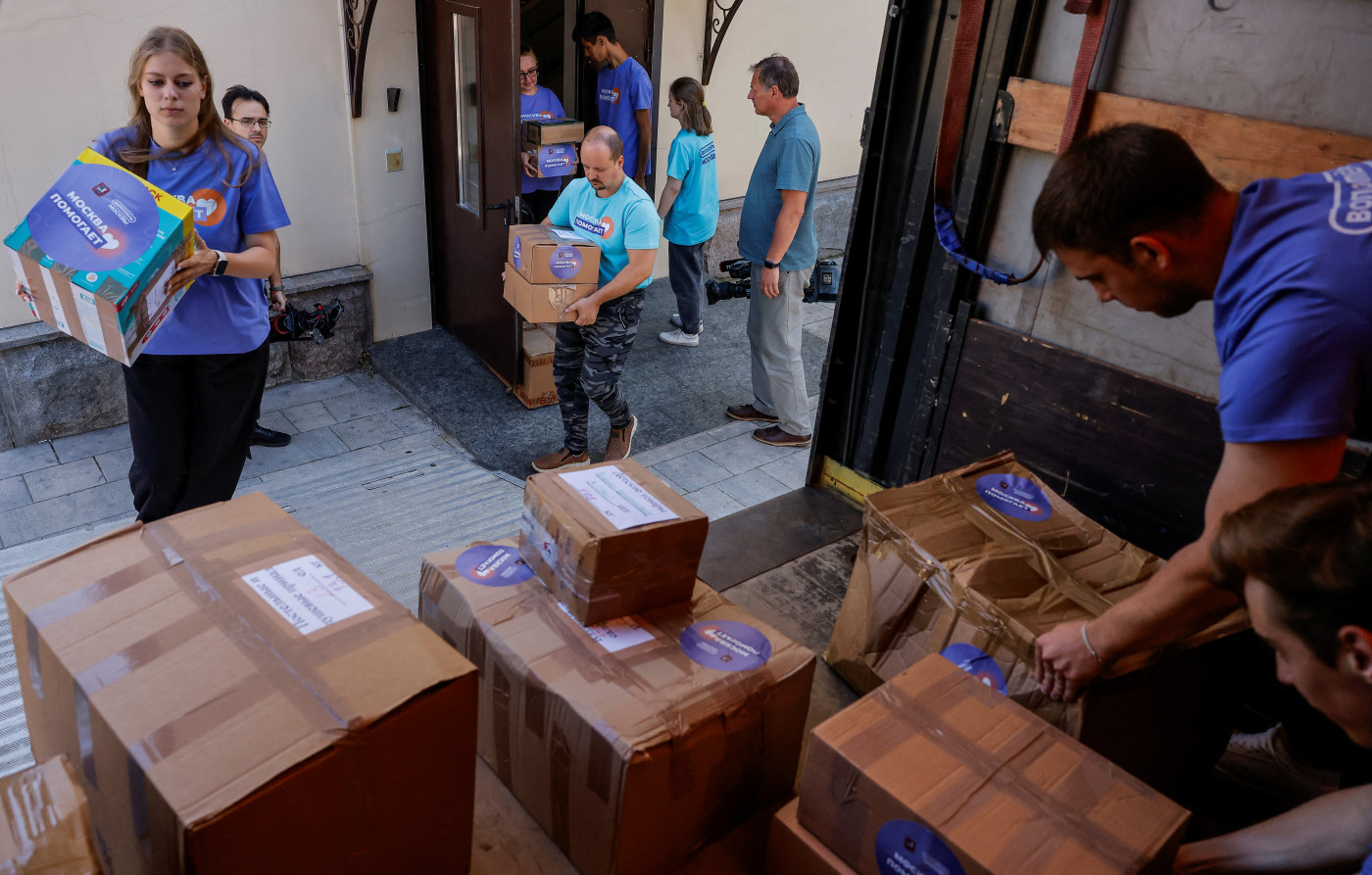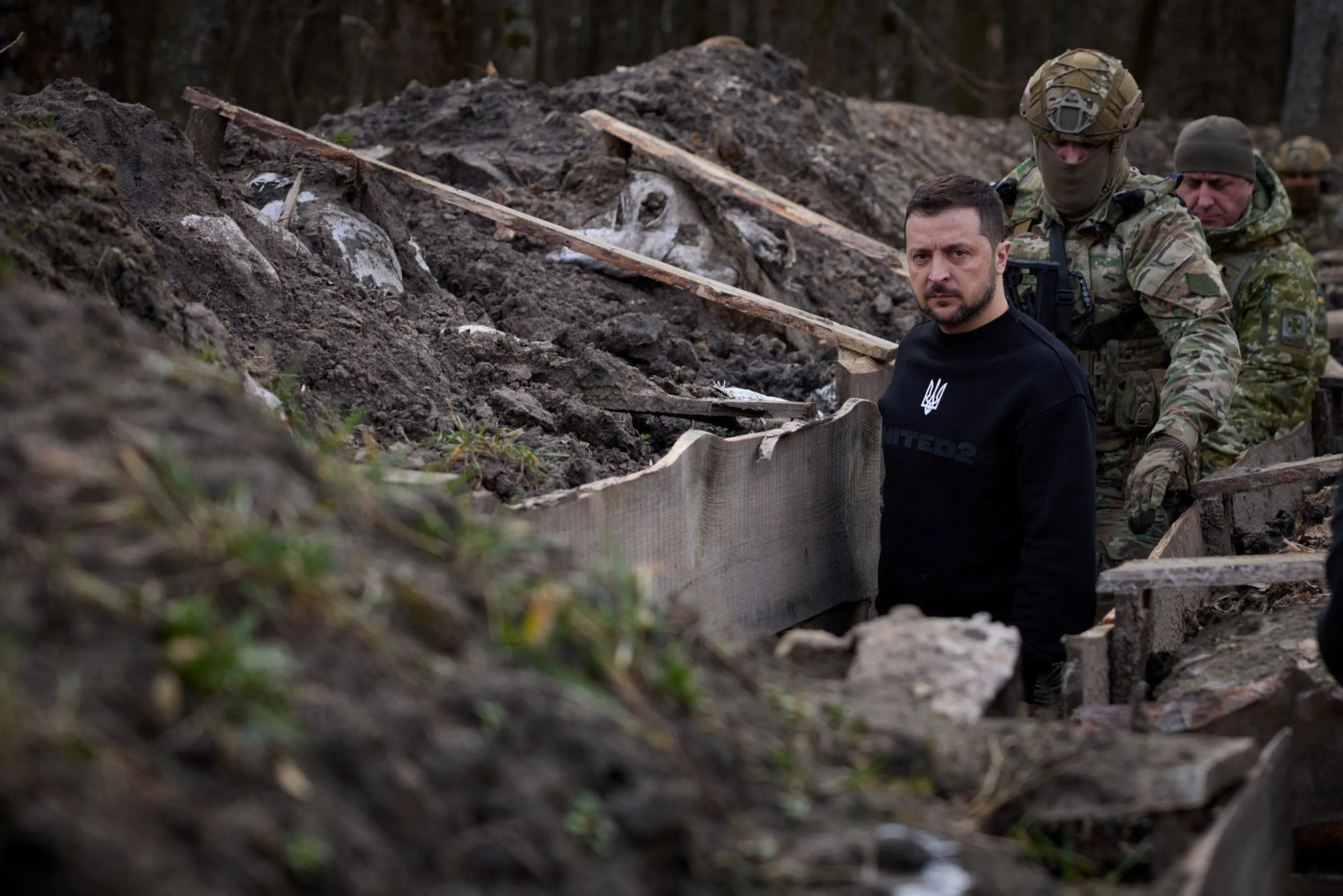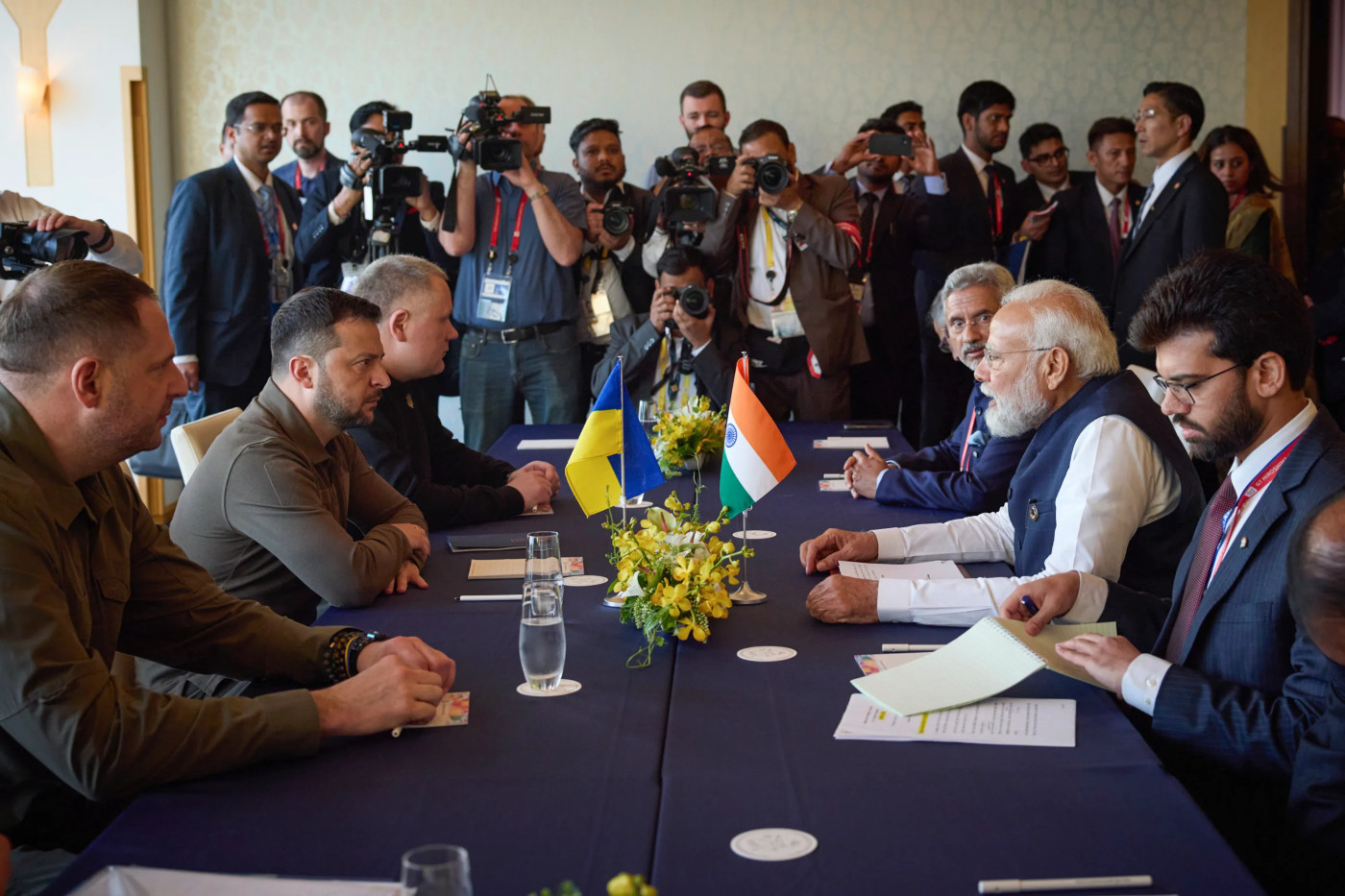Ukraine's Attack on Kursk Is a Huge Gamble and Won't Bring Peace | Opinion
Since Ukrainian soldiers smashed across the Russian border two weeks ago in a surprise attack, a fierce information war has been unleashed by both parties.
Russian media outlets and military bloggers assert that Ukrainian forces are suffering significant casualties along the Kursk front. They claim that Russia has deployed additional troops and heavy artillery to effectively counter the offensive. They claim that Russian missiles, drones, and airstrikes are resulting in the deaths of hundreds of Ukrainian soldiers each day. If true, this would pose a severe challenge for the relatively small Ukrainian military contingent.
At the same time, the information landscape in Ukraine is replete with triumphant announcements. There are claims that Ukrainian forces have seized numerous Russian settlements and nearly 400 square miles of territory in the Kursk region, prompting Moscow to evacuate at least 200,000 people. Ukraine has ample justification for its pride. This offensive is the most significant incursion on Russian territory since the onset of the conflict.
This is only the beginning of the fighting on this new front. The true outcome of the battle will only become apparent over the coming days or weeks. Nonetheless, the political ramifications are already evident.
The primary success of the Ukrainian advance is its symbolic crossing of a thick red line drawn by Russian President Vladimir Putin, who has consistently asserted his willingness to resort to nuclear weapons should Russia's territorial integrity be jeopardized. Zelensky's strategic maneuver put Putin to the test. The result? No nukes.
Ukraine's audacious decision to engage with the world's largest nuclear power has heightened the dangers for Kyiv, Moscow, and the global community at large. The responses from the international community to the intensifying conflict have varied widely, reflecting the diversity of the nations engaged.
Italian Foreign Minister Antonio Tajani said in an interview that the weapons provided by his country "cannot be used to attack Russia on its territory," showing his fears of escalation that might drag NATO into war.
Meanwhile, German Defense Ministry spokesperson Arne Collatz said that legal experts agree that "international law provides for a state that is defending itself also to defend itself on the territory of the attacker."
EU High Representative for Foreign Affairs and Security Policy Josep Borrell also spoke out in support of Ukraine; and the head of the Czech Foreign Ministry, Jan Lipavsky, wrote on the X social network: "Russian aggression against Ukraine since 2014 has destroyed the lives of millions of innocent people. If we want a just peace, not its illusion, the solution is a situation when all armies return to internationally recognized borders."
Like many Ukrainians, I was concerned about the response of the United States. The answer has remained unclear. Although Ukraine has received guidance discouraging the use of U.S.-provided weaponry to directly strike Russian territory, its military operations have progressively disregarded these recommendations. This defiance has frustrated the Biden administration, which has responded by reducing military and financial assistance.
On Aug. 13, President Biden made his first comments about the operation, "It's creating a real dilemma for Putin, and we've been in direct contact, constant contact, with the Ukrainians," he said.
It's hard to imagine a more ambiguous response.
While Ukrainians may take comfort in the moral backing of the United States and the majority of NATO allies, the next phases are fraught. The approximately 50 percent of the populace who had hoped for a November ceasefire must be particularly disappointed. President Volodymyr Zelensky had spoken with such insistence and confidence of the possibility, after all, it was Putin himself who had held out the opportunity.
Speaking at a meeting with top security officials, Putin said that the Ukrainian Armed Forces' invasion of the Kursk region appeared to reflect Kyiv's attempt to achieve a better negotiating position in possible future talks to end the war.
"But what kind of negotiations can we talk about with people who indiscriminately strike at civilians, at civilian infrastructure, or try to create a threat to nuclear power facilities?" Putin exclaimed.
Clearly the Russian leader must have been speaking with heavy irony, accusing Ukraine of committing the very crimes that Russia has been perpetrating daily for the past two-and-a-half years. However, the primary implication of Putin's statement was that negotiations for peace between Russia and Ukraine are unlikely to occur soon.
Zelensky appears cognizant of the permanence of his decision, urging Western military benefactors to remove limitations on Kyiv's use of foreign-supplied weaponry.
"Terror must always be defeated—this is a fundamental principle of protecting life," Zelensky said recently. "We will continue to discuss with our partners how air defense protects lives, and how lifting restrictions on long-range strikes will save thousands of lives."
This is undoubtedly true, but only half the truth. The continuation of the war will inevitably result in a far greater loss of life than a simple lack of air defense and long-range weaponry. War kills, that's how it works. The longer it lasts, the more people will die.
The successful advance of Ukrainian troops deep into Russia does not negate this harsh reality. Is it possible that this will incite panic within the Kremlin and cause the collapse of Putin's regime? I find such a scenario to be as improbable as achieving a win in the "zero game." Nevertheless, the stakes have been established, the wheel of history is in motion and it cannot be reversed.
Sergey G. Maidukov Sr. is a Ukrainian writer, author of Life on the Run and Deadly Bonds. Follow @sergeymaidukov on Instagram.
The views expressed in this article are the writer's own.
Disclaimer: The copyright of this article belongs to the original author. Reposting this article is solely for the purpose of information dissemination and does not constitute any investment advice. If there is any infringement, please contact us immediately. We will make corrections or deletions as necessary. Thank you.



